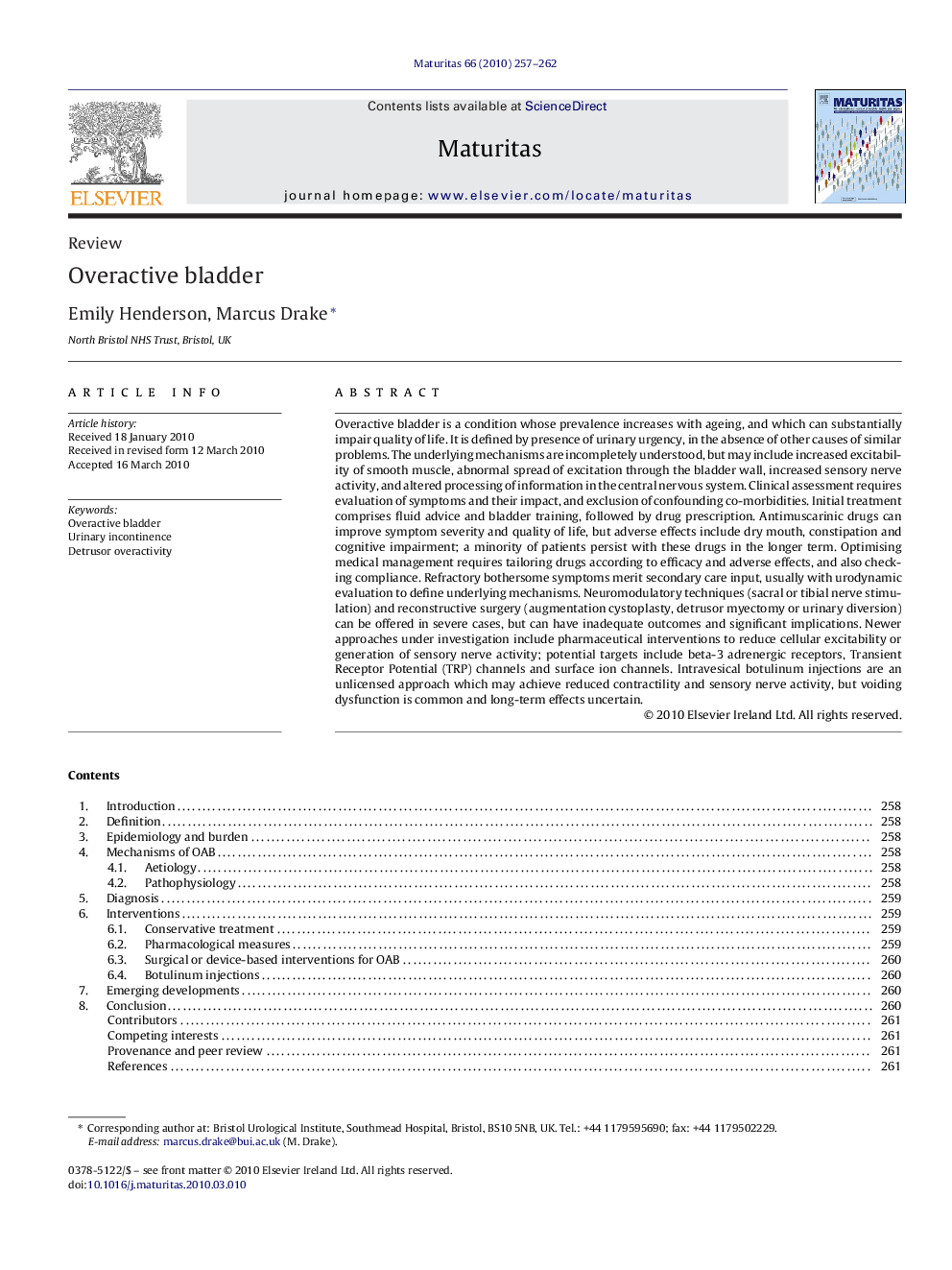| Article ID | Journal | Published Year | Pages | File Type |
|---|---|---|---|---|
| 1918201 | Maturitas | 2010 | 6 Pages |
Overactive bladder is a condition whose prevalence increases with ageing, and which can substantially impair quality of life. It is defined by presence of urinary urgency, in the absence of other causes of similar problems. The underlying mechanisms are incompletely understood, but may include increased excitability of smooth muscle, abnormal spread of excitation through the bladder wall, increased sensory nerve activity, and altered processing of information in the central nervous system. Clinical assessment requires evaluation of symptoms and their impact, and exclusion of confounding co-morbidities. Initial treatment comprises fluid advice and bladder training, followed by drug prescription. Antimuscarinic drugs can improve symptom severity and quality of life, but adverse effects include dry mouth, constipation and cognitive impairment; a minority of patients persist with these drugs in the longer term. Optimising medical management requires tailoring drugs according to efficacy and adverse effects, and also checking compliance. Refractory bothersome symptoms merit secondary care input, usually with urodynamic evaluation to define underlying mechanisms. Neuromodulatory techniques (sacral or tibial nerve stimulation) and reconstructive surgery (augmentation cystoplasty, detrusor myectomy or urinary diversion) can be offered in severe cases, but can have inadequate outcomes and significant implications. Newer approaches under investigation include pharmaceutical interventions to reduce cellular excitability or generation of sensory nerve activity; potential targets include beta-3 adrenergic receptors, Transient Receptor Potential (TRP) channels and surface ion channels. Intravesical botulinum injections are an unlicensed approach which may achieve reduced contractility and sensory nerve activity, but voiding dysfunction is common and long-term effects uncertain.
